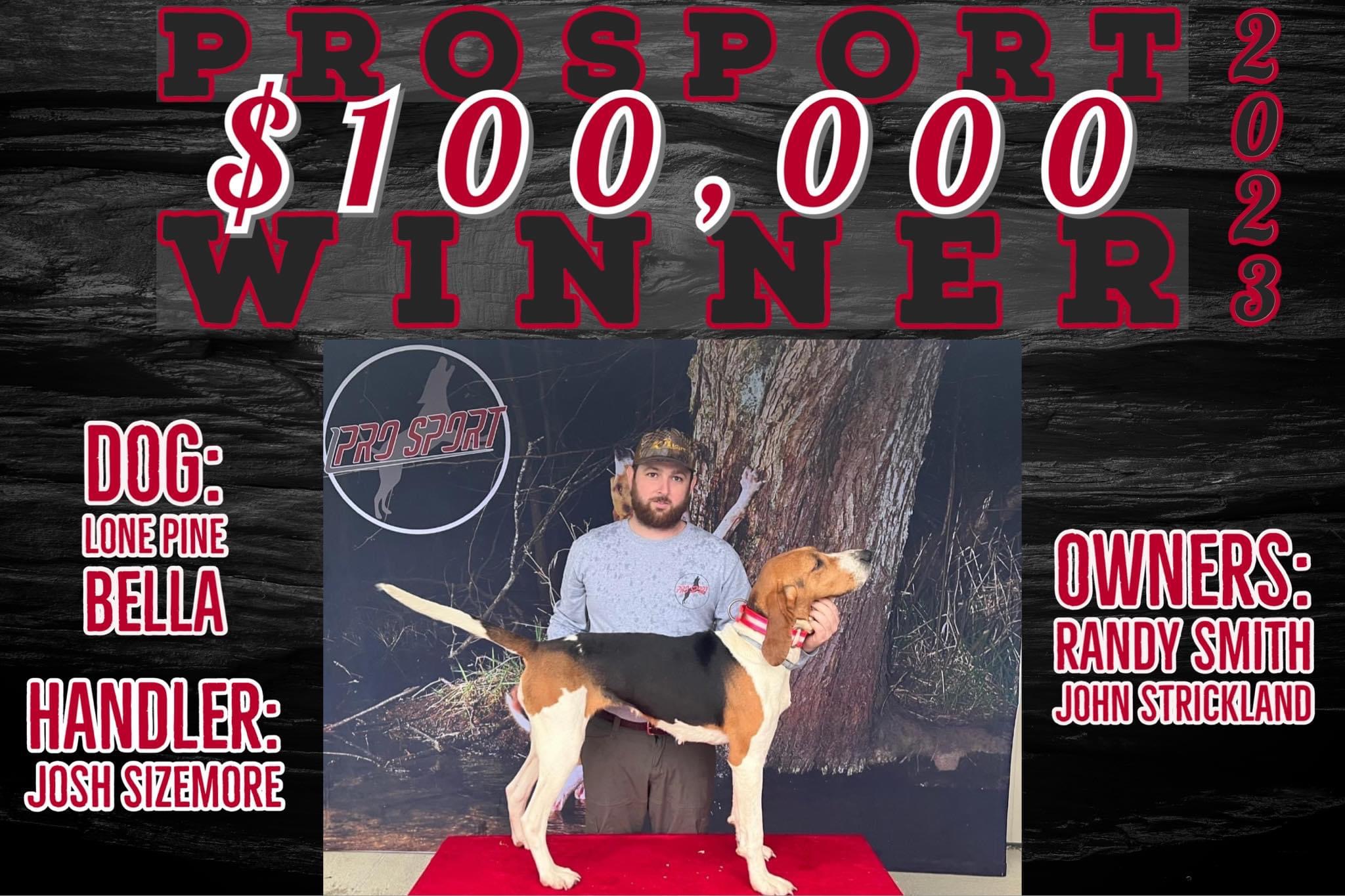Pro Sport Coon Hunting is an exciting outdoor activity. It blends tradition with skill and endurance.
Coon hunting, once a necessity for survival, is now a popular sport. Enthusiasts from various backgrounds join in the thrill of the chase. The sport involves hunting raccoons, often with specially trained dogs. These hunts usually happen at night, adding to the adventure.
Participants navigate through dense woods and rugged terrain. The challenge is not just in finding the raccoon but in doing so efficiently. This sport requires patience, teamwork, and knowledge of the outdoors. Whether you are a seasoned hunter or a beginner, Pro Sport Coon Hunting offers a unique and rewarding experience. Dive into the world of coon hunting and discover why so many are drawn to this thrilling pastime.

Credit: m.youtube.com
Introduction To Pro Sport Coon Hunting
Pro Sport Coon Hunting involves tracking and hunting raccoons using specially trained dogs. This exciting outdoor activity requires skill, patience, and teamwork. Enthusiasts enjoy the challenge and the bond formed with their dogs.
Pro sport coon hunting is a thrilling outdoor activity. It involves hunting raccoons with trained dogs. This sport has gained popularity over the years. Participants enjoy the challenge and excitement it brings.
History And Evolution
Coon hunting has deep roots in American history. Early settlers relied on raccoons for food and fur. They used dogs to track and hunt these animals. Over time, coon hunting evolved into a competitive sport. Today, hunters use advanced training techniques for their dogs. Modern equipment has also improved the hunting experience.
Popularity And Community
Pro sport coon hunting has a dedicated following. Many communities host events and competitions. These gatherings bring hunters together to share their passion. Participants form strong bonds and exchange tips. Social media platforms also help connect enthusiasts. This growing community continues to support and promote the sport. “`

Credit: codymoreland127.podbean.com
Essential Gear For Coon Hunting
Embarking on a coon hunting adventure requires the right gear. Proper equipment ensures safety, comfort, and success. Let’s explore the essential items every coon hunter needs.
Clothing And Footwear
Wearing the right clothing is crucial for coon hunting. Choose durable, weather-resistant gear. Camouflage patterns help blend with the surroundings. Layer up to stay warm during cold nights.
Footwear is equally important. Invest in waterproof boots. They provide comfort and protection. High-quality boots prevent slips and falls. They also keep your feet dry in wet conditions.
Lighting Equipment
Good lighting is essential for night hunting. A headlamp is a must-have. It frees your hands while providing light. Choose one with adjustable brightness.
Carry a flashlight as a backup. Ensure it is powerful and has a long battery life. Rechargeable options are convenient. They save money and reduce waste.
Selecting The Right Hunting Dog
Choosing the right hunting dog is essential for successful Pro Sport Coon Hunting. The right dog can make a big difference in your hunting experience. There are specific breeds and traits to consider. Training techniques are also crucial for preparing your dog.
Breeds And Traits
Several breeds are known for their coon hunting abilities. These breeds have unique traits that make them excellent hunters.
- Treeing Walker Coonhound: Known for their speed and endurance. They have an excellent sense of smell.
- Redbone Coonhound: Easily recognizable by their red coat. They are known for their determination and agility.
- Black and Tan Coonhound: Known for their loyalty and keen sense of smell. They are also great companions.
- Bluetick Coonhound: These dogs have a strong work ethic and a cold nose. They can track older scents.
Each breed has strengths that make them suitable for coon hunting. Understanding these traits helps in selecting the right dog for your needs.
Training Techniques
Training is crucial for a successful hunting dog. Start training at a young age. Follow these basic steps:
- Basic Obedience: Teach commands like sit, stay, and come. This establishes control.
- Tracking Skills: Use scent trails and drags. Encourage your dog to follow scents.
- Treeing Training: Use a caged raccoon to simulate real hunting. Reward your dog for treeing.
- Night Hunts: Practice hunting at night. This helps your dog adapt to real conditions.
Consistency and patience are key. Reward good behavior and correct mistakes gently. Over time, your dog will become a skilled coon hunter.
Remember to keep training sessions short. Long sessions can tire your dog and reduce effectiveness.
Choosing and training the right dog enhances your Pro Sport Coon Hunting experience. With the right breed and proper training, success is within reach.
Navigating Nighttime Terrain
Pro Sport Coon Hunting offers an exhilarating experience, especially during nighttime. The thrill of tracking and hunting in the dark requires skill and precision. Navigating nighttime terrain is a critical aspect of this adventure. It involves understanding the landscape, ensuring safety, and using the right tools. Let’s dive into key areas that will help you succeed in nighttime coon hunting.
Reading The Landscape
Understanding the terrain is essential. Pay attention to natural landmarks. Use a reliable map or GPS device. Identify potential hiding spots for raccoons. Look for signs like tracks or droppings. Notice changes in vegetation and ground texture. These clues help you predict raccoon movement. Familiarize yourself with the area in daylight. This will make nighttime navigation easier.
Safety Precautions
Safety is crucial during nighttime hunting. Wear reflective clothing to be visible. Carry a bright flashlight or headlamp. Keep extra batteries on hand. Always inform someone about your hunting plans. Carry a first aid kit for emergencies. Stay aware of your surroundings. Avoid dangerous areas like steep cliffs or deep water. Use a GPS device to track your location.
Tracking And Treeing Raccoons
Coon hunting is an exciting sport. It involves tracking and treeing raccoons. Hunters often rely on their dogs for this task. Dogs use their natural instincts to find raccoons. The process requires patience and skill.
Using Dog’s Instincts
Hunting dogs have sharp instincts. These instincts help them track raccoons. They follow the raccoon’s scent. This scent leads them through forests and fields. The dogs stay focused. They listen for any movement. Their keen sense of smell guides them.
When a dog catches a scent, it alerts the hunter. The dog may bark or growl. This signal tells the hunter to follow. The hunter trusts the dog’s instincts. Together, they track the raccoon. It’s a team effort. Both rely on each other.
Identifying Signs
Hunters also look for signs of raccoons. Tracks on the ground are a common sign. Raccoon tracks have a unique pattern. They show five toes. Hunters learn to recognize these tracks.
Scratches on trees are another sign. Raccoons often climb trees. Their claws leave marks. Hunters check trees for these scratches. They also look for broken branches. These signs indicate a raccoon may be nearby.
Hunters listen for sounds. Raccoons make distinct noises. They may rustle leaves or chatter. These sounds help locate the raccoon. Hunters use all their senses. They combine their skills with the dog’s instincts.

Credit: www.facebook.com
Legal And Ethical Considerations
Pro sport coon hunting is a thrilling activity. Yet, it is essential to be aware of the legal and ethical aspects. Following regulations and respecting wildlife are key to a responsible hunting experience.
Hunting Regulations
Each region has specific hunting laws. These laws are designed to maintain a balance in the ecosystem. It is vital to know and follow these regulations.
Here are some key points to consider:
- Licensing: Obtain the necessary hunting licenses and permits.
- Seasons: Hunt only during the designated hunting seasons.
- Bag Limits: Adhere to the bag limits set for the species.
Ignoring these regulations can lead to legal issues. It can also harm the wildlife population.
Respecting Wildlife
Respect for wildlife is crucial in hunting. It ensures the sustainability of the sport and the environment. Ethical hunters follow certain practices:
- Fair Chase: Give the animal a fair chance to escape.
- Humane Methods: Use humane methods to harvest the animal.
- Minimize Waste: Do not waste the animal’s meat and other parts.
Respecting wildlife also involves understanding the animal’s behavior and habitat. This knowledge helps in making informed decisions while hunting.
Strategies For A Successful Hunt
Coon hunting is an exciting sport that requires skill and strategy. To have a successful hunt, you must plan carefully and adapt quickly. Here are some key strategies to enhance your coon hunting experience.
Planning And Preparation
Begin by studying the hunting area. Know the terrain and where raccoons are likely to hide. Use topographic maps or GPS devices to mark important spots. Check the weather forecast. Raccoons are more active on warmer nights.
Equip yourself with the right gear. A good flashlight, durable boots, and a reliable weapon are essential. Bring extra batteries and a first aid kit. Make sure your dog is well-trained and ready for the hunt. Practice commands and ensure your dog can track scents effectively.
Adapting To Conditions
Conditions can change quickly during a hunt. Stay flexible and ready to adjust your strategy. If the weather changes, modify your approach. Rain or snow can alter raccoon behavior.
Pay attention to your dog’s cues. Dogs can sense and track raccoons better than humans. Trust their instincts and follow their lead. Stay quiet and move slowly. Raccoons have keen hearing and can be easily spooked.
Use cover to your advantage. Trees, bushes, and terrain features can help you stay hidden. Position yourself downwind from your target. This prevents raccoons from catching your scent. Keep a low profile and remain patient.
Post-hunt Practices
Post-hunt practices are crucial for ensuring the health and well-being of both the hunter and their dog. These practices help maintain equipment, reflect on the hunt, and prepare for future adventures. Let’s dive into some essential post-hunt practices to keep your hunting experiences positive and rewarding.
Caring For Your Dog
Your dog’s health is vital after a hunt. Start with a thorough check for any injuries or ticks. Clean their paws to remove dirt, thorns, or any other debris. Provide fresh water and a nutritious meal to help them recover.
Rest is important. Ensure your dog has a comfortable space to relax. Monitor their behavior for any signs of discomfort or fatigue. A vet visit is wise if you notice anything unusual. Consistent care ensures your dog remains healthy for future hunts.
Reflecting On The Experience
Reflection is key to improving your hunting skills. Think about what went well during the hunt. Consider the areas where you can improve. Did your strategies work? How did your dog perform?
Jot down notes in a hunting journal. This helps you remember key details for next time. Sharing experiences with fellow hunters can also provide valuable insights. Learn from each hunt to become better over time.
Frequently Asked Questions
What Is Coon Hunting?
Coon hunting involves pursuing raccoons, typically at night, using trained dogs. The dogs track and tree the raccoons, making them accessible to the hunters.
What Equipment Is Needed For Coon Hunting?
Essential equipment includes a headlamp, hunting boots, GPS collar for dogs, and a reliable firearm. A tracking system helps monitor dogs.
How Do You Train A Coon Hunting Dog?
Training involves teaching dogs to track raccoons by scent. Start with basic obedience, then introduce raccoon scents and controlled hunts.
Is Coon Hunting Legal?
Coon hunting is legal in many areas, but regulations vary. Always check local laws and obtain necessary permits before hunting.
Conclusion
Pro sport coon hunting offers an exciting outdoor adventure. It builds skills and strengthens bonds with fellow hunters. Safety and respect for nature are key. Always follow local regulations and hunt responsibly. With practice, you can improve your techniques. Enjoy the thrill and beauty of the hunt.
Happy hunting!


